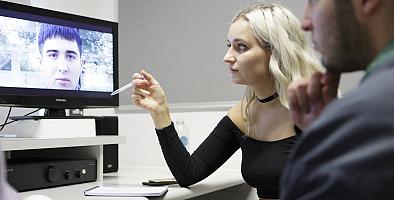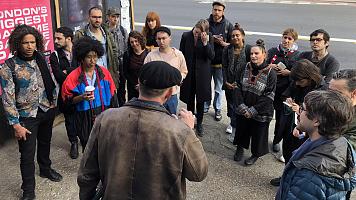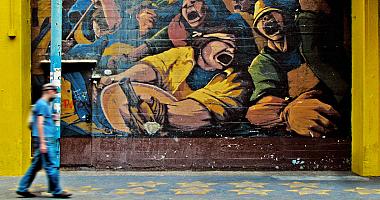Course information
Department
Length
1 year full-time, 2 years part time
Course overview
This MA is designed for students interested in new ways of exploring and understanding the social world through the use of visual, sensory, and other experimental approaches. You’ll study sociological issues alongside innovative methods and gain the tools needed to examine, represent and intervene in the social world.
Why study MA Sociology (Visual Sociology) at Goldsmiths
- You’ll join students from a wide variety of backgrounds, including art, design, anthropology, media and communications, cultural studies, geography, and sociology.
- You’ll develop the ability to carry out empirical research and present it publicly in a variety of media and materials. You’ll engage with sociology as an inventive research practice, using creative research methods to address classic and changing sociological problems.
- You’ll be introduced to the range of debates in visual research and encouraged to build on these by using visual, sensory and inventive methodological practices to carry out critical social research in your areas of interest, whether this is science and technology, contemporary capitalism, gender and sexual cultures, race, human rights, globalisation, or other aspects of social life.
- Combining lectures and seminars with practical sessions and workshop-based projects, this MA will help you develop a hands-on approach to sociological research. You’ll gain a skills base in methods which could be used in public sector contexts, art or media research, design or commercial application.
- As well as presenting your ideas through writing, you’ll have the opportunity to produce different outputs, including film/video, photography, sound and multimedia pieces. You’ll also have the opportunity to organise and curate some of this work in an exhibition.
- Critical feedback sessions function as a testing ground for individual projects, and themed projects allow you to further develop a portfolio of research outputs geared to a variety of audiences.
- You’ll have the opportunity to design and reflect on your own research projects. The dissertation allows you to complete a substantive research project on your individual interests, supported by one-to-one supervision with a member of staff.
- You’ll have access to post-production and editing stations, as well as equipment for photography and video. You can also borrow audio-visual and media equipment from the IT Service Desk.
- The MA is based in the Department of Sociology, home of The Methods Lab and at the forefront of research using 'live sociology' which embraces methodological innovation. You’ll be taught by staff with a wide range of experience in both sociology and interdisciplinary research, including visual and experimental approaches. Our world-leading Department has been rated top 10 in the UK for sociology in the QS World University Rankings 2023.
Contact the department
If you have specific questions about the degree, contact Dr Michael Guggenheim.





